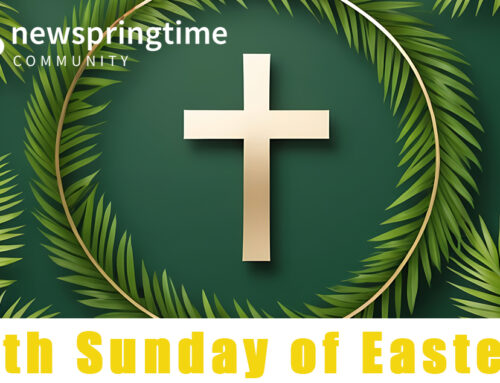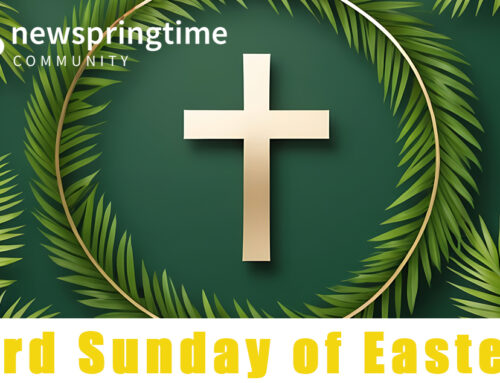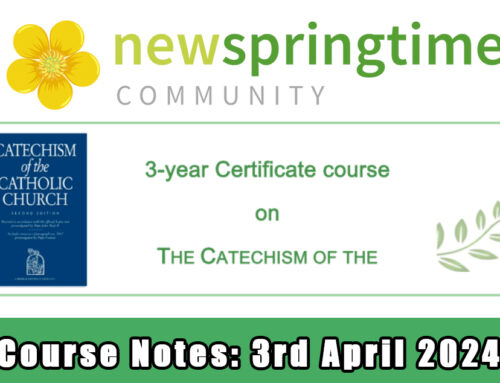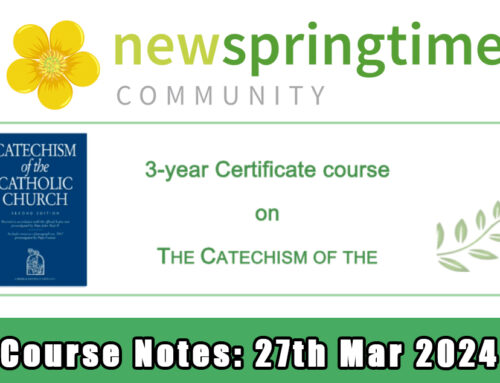The Catechism of the Catholic Church – Course Notes – Wednesday 8th November 2023
To download The Catechism of the Catholic Church course notes for 8th Nov 2023, please click here
Catechism Commentary Week 9
The Church believes that there was a particular time when the created universe, visible and invisible came into being as God desired. As the book of Genesis says, “In the beginning God created heaven and earth.” The big bang theory and the law of entropy in cosmology seems to provide empirical support for this contention. Some scientists hypothesize that there were endless big bangs, and perhaps an endless sequence of universes that exist eternally in one way or another. Although there is no compelling evidence to support this contention, Christian thought would say that an eternally existing world would be contingent, i.e., not the adequate explanation of its own existence. Given that something cannot come from nothing, even an eternally existing universe would depend on God for its being. Creation did not depend on any pre-existing ingredients.
Christians believe that there is a hierarchy in the created realm. At the lowest level is inert matter, then there are living non rational forms of vegetable and animal life. Then we have human life which is rational and endowed with an immortal soul. Finally, there is the angelic realm of non-material pure spirits who are endowed with high intelligence and have several roles, e.g., worshipping God, bringing messages from God to human beings And guarding them from such things as the temptations, illusions and false inspirations of the fallen angels.
Speaking about the purpose of creation, it is well worth noting that the CCC mentions two main things, to praise God and to serve humanity. By fulfilling their God given purpose the non-human world praises God. As one Gaelic verse puts it, “only a fool would fail to praise God in his might when the tiny mindless birds praise him in their flight.” As for human beings, we serve an apprenticeship on earth by praising God for what we are destined to do in heaven in union with the angels. As Eph 1:12 says, God’s purpose was, “that we who were the first to hope in Christ [who first put our confidence in Him as our Lord and Savior] would exist to the praise of His glory.” Creation is there to serve humanity by providing the means by which we live, e.g. food, but we too as members of creation are also here to serve humanity. There was a joke years ago where Charlie Brown said, “I love humanity, it is people I can’t stand.” We can serve one another by doing what Jesus said, “Do for others what you want them to do for you: this is the meaning of the Law of Moses and of the teachings of the prophets” (Mt 7:10).
The CCC goes on to say, firstly that in virtue of the creation of all things by God, although there are obvious differences, there is a common unity. This holistic view would be one factor underpinning ecology. Secondly, we are told that creation is governed by God given laws, e.g., the laws of physics, and there is also the moral law, e.g., the ten commandments, which govern human behaviour.
Finally, the question is asked, what is the connection between the work of creation, the original blessing and the work of redemption, the second blessing? The saving work of Christ deals with the fallout of original sin, by bringing in the kingdom or reign of God by the outpouring of the gift of God’s merciful love. As John Paul II, said, through the action of the Holy Spirit, the Lord is seeking to create “a civilization of love” which will only come to its fulfillment with the second coming of Christ when the devil will be cast down forever, death and sickness will be no more, and heaven will come to earth and transfigure it. When that occurs in the fulness of time, “everything will recover its true meaning and fulfillment.” As Dame Julian of Norwich put it, “All will be well, and all will be well, and all manner of things will be well.”





